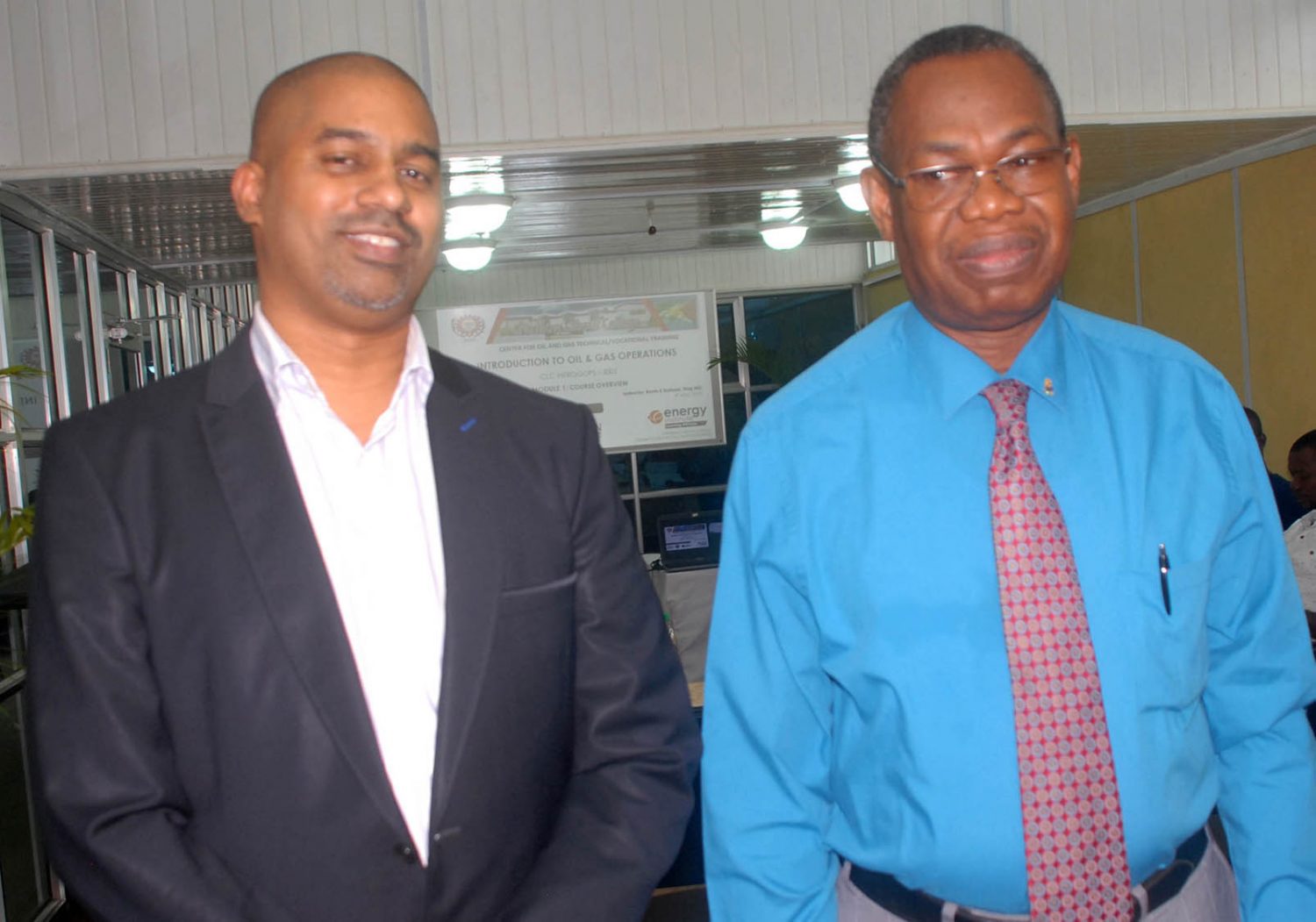Last week’s delivery of a two-day preliminary course in oil and gas at the Critchlow Labour College marks the inaugural initiative of the Critchlow Labour College in pursuit of the establishment of a Critchlow Centre for Oil and Gas, according to the Secretary to the College’s Board of Directors Lincoln Lewis.
“The Critchlow Labour College, from inception, has been seeking to provide workers’ education aimed at building labour’s capacity to perform at the workplace and be productive stewards of society.
It is for this reason a decision has been taken for the establishment of the Critchlow Centre for Oil and Gas,” Lewis, on Thursday told the class of twenty-five young participants assembled for the inaugural programme.
He said that the Centre will function “within the purview of the College, and its activities executed through joint-partnership with the Trinidad and Tobago companies Kaizen Environmental Services and Apollo Global Vision” though he added that this “does not preclude other services and that both Kaizen and Apollo bring to the table unique technical expertise, which when combined, augurs well for the workforce, the industry and Guyana”.
Prior to the commencement of the training programme, Lewis had told the Stabroek Business that the College intends to work with both local and international institutions “to contribute to the building of capacity in the oil and gas industry, consistent with its obligation to help prepare Guyanese workers to take up jobs in the sector.” He said that he “strongly believed” that “differences over the prevailing contractual arrangements with ExxonMobil should not cause us to lose sight of the opportunity provided by the imminent exploitation of our oilfields.”
Last week’s 12-module, 2-day programme was executed by Kaizen Environmental Services, a subsidiary of Kaizen International Inc. of Calgary, Canada and Apollo. Kaizen operates a state of the art environmental analytical laboratory in Trinidad and Tobago and is credited with completing the largest environmental reclamation project in the Caribbean, to date. Kaizen also operates Trinidad and Tobago’s only full-service Waste Treatment Facility for oilfield industrial waste.
Lewis told Stabroek Business that the emergence of an oil and gas sector in Guyana had created an opportunity “not only to revive the fortunes of the Critchlow Labour College” which he conceded had declined over time, but also to become involved, over time, in creating a Centre that could serve as “hopefully, one of several local institutions that could collectively and incrementally build capacity in oil and gas training in Guyana. We are currently working, the Principal of the Critchlow Labour College, Mr. Ivor English and myself to develop a training capability in oil and gas as part of a broader initiative to rebuild the overall capacity of the College,” Lewis told Stabroek Business.
Last week, Stabroek Business was afforded access to an exchange between the Coordinator of last week’s two-day course, Kevin Durham, who is currently serving as Chairman of the Caribbean Overseas Branch of the Energy Institute, an international body charged with organizing regional programmes and technical visits. Programmes are developed continually to ensure topicality and relevance to current and future energy issues, and Durham says that the Institute “is both equipped and prepared to deliver the training necessary to better position Guyanese to play an enhanced role in the oil production process.” Durham has also undertaken to commence a process that will allow for Guyanese on the whole to benefit from ‘education and training” through the media “that will help to broaden their understanding of the oil and gas industry.”
The Critchlow Labour College, according to Lewis, having successfully secured a partner in its quest to deliver “an oil and gas curriculum” is now “challenged to generate both enthusiasm for its programmes as well as the funding to ensure their sustainability. That means we will be engaging both domestic and local organizations”.
In his address to last Thursday’s opening of the programme Lewis said that while the oil and gas issue has realized “varying positions” among local commentators what could not be denied was the need to develop the capacity and capability of Guyanese to be oil and gas ready. “The Critchlow Labour College and the Guyana Trades Union Congress believe that no effort must be spared to have workers prepared to meet the challenges and to take every opportunity in ensuring meaningful participation, thereby asserting their role and responsibility in development of the industry.”





